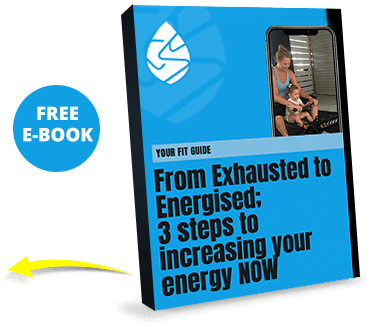If the answer were more information, we would all be millionaires, and we’d all eat our veggies, wouldn’t we?? Here are some questions to review your last 30 days:
At some point, did you eat more than you knew you should have?
Have you text while driving?
Have you exercised less than you intended to?
Have you used a takeaway coffee cup?
You see, if we’re honest, there are probably a few Yes’ to the questions above. We are all smart enough to know that none of these things are ‘good’ choices, and yet why every day do we choose them? Now, I have borrowed a little here from a ted talk I highly recommend watching:
Great Ted Talk – 15 minute watch.
The social scientist talks about manipulating your environment to reduce friction and fuel motivation to allow oneself to change their behaviour. When we look at this a little deeper and examine the work of Charles Duhigg in The power of habit, we know a habit involves a: cue, a routine and then a reward. Years ago, I had a 90-minute commute to work. Waking up at my regular time, heading out the door, driving in completely the wrong direction for close to 20 minutes, I was on autopilot. It was Saturday, the friends I was meeting for breakfast were being stood up, I was on my way to work. We have all had that experience of being in auto-pilot mode. Only to be startled with the realisation of ‘oh my god, what is happening?' When scientists observed the formation of a new habit, they found the brain activity of individuals is highly active throughout. However, once established, i.e. once that path to work was in my head, there was no real thinking required. Just a period of high activity at the start, i.e. ‘the cue’ followed by small amounts of brain activity while driving to work, i.e. ‘performing the routine’ only to then have a peak with the ‘reward’ arriving at work. The establishment of such a pattern takes a lot of energy.
When we look at shorter-term solutions in health like the eight-week challenges or the shake diets, you will often hear the individual talk about how they didn’t go out, became obsessed and did nothing else. They completely changed their environment; their life became an eight-week challenge. Come, week nine or the end of the 30 days prescription of shakes and it's a tough transition ‘back into normal life’. They go from a frictionless highly motivated state into the big bad world of friction and chaos. What if we approached things slightly differently, we focus on the points of friction within the big bad world. One established habit at a time. We make that one habit our initial focus for just seven days before focusing on another. What we know from studies is that ‘exercise spills over’, exercise seems to have a much greater flow onto other health-related areas of your life. Movement in whatever sense yoga, walking, high-intensity interval training, they all reduce friction for change in other areas of life. Having worked in this space for more than a decade, I’m still amazed at just how powerful this is. Without trying to change anything else, if you start moving, other changes start to happen. If we remove an ‘expectation’ from the activity: ‘Im going to get ripped’ the person does nothing but benefit from exercise, they start eating better, they start moving more. They feel as though they are progressing in the direction of their choice. Their actions are enabling greater change. Once we place an expectation on each ‘workout’ we kill that potential in its tracks because we no longer focus on the point of impact, we get too caught up in the destination. One of my main recommendations is to move four days per week, aim for five because life is going to get in the way of at least 1 of those attempts, but 4 creates momentum. You are moving more days than your not! You see yourself differently; you are someone that moves! One gentleman, I recently started working with talked through his goals, and we put together a plan. I asked him to empty his mind of all ‘result-focused’ thinking. When those voices started telling him: this will mean this and if we push a little harder here we will end up at less than 10% body fat, Bla Bla Bla we all have that voice at times. I asked him to let those thoughts go and focus only on the workout at hand and the next meal. This gentlemen was also a smoker and wanted to stop. A lot of researchers have looked in-depth at motivation, and one of the keys to staying motivated is to feel progress. If I can help that person feel that progress daily, the chances to sustain that change increase significantly. One of the worst parts of smoking is the impact it has on your cardiovascular system, your breathing rate increases as your lung capacity is reduced; the body is amazing and almost instantly starts to improve with the cessation of smoking. Lung Tissue regenerates lung capacity increases; our heart doesn’t have to work as hard to get the oxygen around our body. A great way to motivate a smoker is to ask them to monitor their resting heart rate. Within three weeks, this gentlemen had reduced his resting heart rate by 12 beats per minute, what a win! The research also supports small wins being celebrated and resulting in greater flow-on effects. One of the ways I do this for the person is demonstrating the impact of such a minor change. Let’s multiply that out, 12 beats per minute, of which there are 1440 in a day, that is 17,280 fewer beats per day and a staggering 120,960 beats per week he just saved himself! That is worth celebrating. Another common one I work through with individuals is ‘non-hungry eating’, usually a dessert or second serve that is probably not necessary; one change we talk about replacing the ice cream with the toothbrush. Instead of finishing dinner, watching Netflix and then heading to the freezer, before Netflix starts, I ask that person to brush their teeth. The mouthfeel completely changes, the routine becomes the brushing the teeth, and the reward becomes Netflix. Imagine that habit-forming and playing itself out 300 times over 2020 rather than the former.
While there is a lot of information out there before getting another suggestion or sales pitch, maybe think of the easiest thing you could change right now and make that the focus for the next seven days. If you end up standing in front of the mirror brushing your teeth before the next series binge, give yourself a little wink for me.
Yours in Health
Sean Cornish



